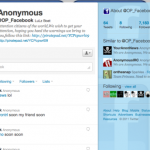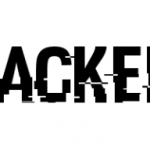Supongo que si sacas 10 minutos al día para informarte de lo que pasa en el mundo, entonces en más de una ocasión habrás oido hablar de LulzSec. Un grupo de hackers que se han auto-atribuido los ataques a Sony, PBS, Fox, Nintendo, Bethesda software, Infragard, Citibank, el FBI, la CIA, el gobierno de Estados Unidos, y varios sitios de pornografía.
Pues bien, el día de hoy Scotland Yard y el FBI anunciaron haber detenido a la mente maestra detrás de LulzSec, un joven de 19 años de edad del Reino Unido. El chico ahora enfrenta casos de hacking y piratería en línea, sin mencionar posibles cargos por ciber-terrorismo.
Tras la detención, el hombre fue llevado a una comisaría de Londres, donde se encuentra actualmente bajo custodia para ser interrogado.
Sky News informó desde el principio que el adolescente era el cerebro detrás de LulzSec, el prominente grupo de hackers que ha causado estragos en varias empresas y organizaciones gubernamentales en los últimos tiempos.
Desde que estos ataques comenzaron, sabíamos que tarde o temprano los causantes terminarían cayendo, pues en el mundo de la informática tienes que ser más que bueno para cometer crímenes y salir íleso. Sin embargo, determinar si efectivamente este joven es el líder de LulzSec podría ser difícil, por no decir imposible. Al igual que sus compañeros de la organización hacking Anonymous, LulzSec parece ser un colectivo de personas sin una clara cadena de mando.
De hecho, se dice que LulzSec es un derivado de Anonymous, pero sin un mensaje político general o principio moral. Anonymous ha atacado objetivos que van desde la Iglesia de la Cienciología hasta los gobiernos de Irán y Egipto, además de PayPal, Visa, MasterCard y después que esas empresas trataron de impedir el pago a WikiLeaks.
LulzSec salió de la nada y han estado muy activos en las últimas semanas. El mes pasado, el grupo atacó a PBS, y publicaron una noticia falsa que decía que el fallecido artista musical Tupac Shakur todavía estaba vivo. Luego dieron a conocer las contraseñas de PBS en la Web. Además, el grupo se ha atribuido la responsabilidad de atacar en varias ocasiones a Sony, pero también a Nintendo y empresas que trabajan con el FBI en una asociación público-privada.
También han dirigido su atención contra el gobierno de Estados Unidos, atacando el sitio del Senado de Estados Unidos y publicando la información de sus servidores en línea. A principios de este mes, la organización también se atribuyó la responsabilidad de tomar temporalmente el sitio web de la Agencia Central de Inteligencia (CIA).
LulzSec se volvió cada vez más confiado en sus habilidades para atacar a sitios cada vez que quiesieran. El grupo fue tan lejos como para abrir una línea telefónica a través de la cual los seguidores pueden llamar y pedir los sitios que quieren que LulzSec ataque. En su primer día de operación, de acuerdo con LulzSec, el grupo había recibido 5,000 llamadas perdidas y más de 2,500 mensajes de voz .
Esa línea directa, simplemente sirve para diversión LulzSec, y el mismo grupo dijo la semana pasada en su comunicado, que todo esto lo hacen «por diversión». Después de todo el nombre de la organización se deriva de «lulz», que a su vez se deriva de las siglas LOL, que significa «reírse a carcajadas»
Sin embargo, LulzSec se puso serio ayer cuando anunciaron que se asociarían con Anonymous para hackear agencias gubernamentales, bancos y otras organizaciones destacadas organizaciones en una campaña llamada «AntiSec».
«La prioridad máxima es robar y filtrar cualquier información clasificada del gobierno, incluyendo correos electrónicos y documentación,» dijo Lulzsec en un comunicado. «Los principales objetivos son los bancos y otros establecimientos de alto rango. Si ellos tratan de censurar nuestro progreso, vamos a eliminar la censura con fuego de cañón ungido con sangre de lagarto».
Tras la detención de anoche, una búsqueda en la casa del adolescente en Wickford produjo «una importante cantidad de material», dijo la Policía Metropolitana. Sin embargo, la agencia no dijo si ese material está relacionada con AntiSec o con cualquier otra operación específica.
Para dar con el paradero del supuesto líder de LulzSec, las agencias de inteligencia recibieron ayuda de otro grupo de hackers (supuestamente buenos) conocidos como Web Ninjas y que filtraron datos sobre la ubicación del chico.
Mientras tanto, ayer en la cuenta de Twitter de LulzSec se leía el siguiente mensaje:
«Seems the glorious leader of LulzSec got arrested, it’s all over now… Wait… We’re all still here! Which poor bastard did they take down?»
Yo pienso que si te vas a arriesgarte a ser detenido, mejor que sea por una buena causa. No le veo sentido a robar las claves de una empresa y luego publicarlas en internet ¿A quién rayos le importa? Si quieres hacer algo útil publica información que todo el mundo quiera saber. Puedes ser hacker si quieres, pero jamás seas estúpido.
A continuación les dejo el comunicado de LulzSec.
- Dear Internets,
- This is Lulz Security, better known as those evil bastards from twitter. We just hit 1000 tweets, and as such we thought it best to have a little chit-chat with our friends (and foes).
- For the past month and a bit, we’ve been causing mayhem and chaos throughout the Internet, attacking several targets including PBS, Sony, Fox, porn websites, FBI, CIA, the U.S. government, Sony some more, online gaming servers (by request of callers, not by our own choice), Sony again, and of course our good friend Sony.
- While we’ve gained many, many supporters, we do have a mass of enemies, albeit mainly gamers. The main anti-LulzSec argument suggests that we’re going to bring down more Internet laws by continuing our public shenanigans, and that our actions are causing clowns with pens to write new rules for you. But what if we just hadn’t released anything? What if we were silent? That would mean we would be secretly inside FBI affiliates right now, inside PBS, inside Sony… watching… abusing…
- Do you think every hacker announces everything they’ve hacked? We certainly haven’t, and we’re damn sure others are playing the silent game. Do you feel safe with your Facebook accounts, your Google Mail accounts, your Skype accounts? What makes you think a hacker isn’t silently sitting inside all of these right now, sniping out individual people, or perhaps selling them off? You are a peon to these people. A toy. A string of characters with a value.
- This is what you should be fearful of, not us releasing things publicly, but the fact that someone hasn’t released something publicly. We’re sitting on 200,000 Brink users right now that we never gave out. It might make you feel safe knowing we told you, so that Brink users may change their passwords. What if we hadn’t told you? No one would be aware of this theft, and we’d have a fresh 200,000 peons to abuse, completely unaware of a breach.
- Yes, yes, there’s always the argument that releasing everything in full is just as evil, what with accounts being stolen and abused, but welcome to 2011. This is the lulz lizard era, where we do things just because we find it entertaining. Watching someone’s Facebook picture turn into a penis and seeing their sister’s shocked response is priceless. Receiving angry emails from the man you just sent 10 dildos to because he can’t secure his Amazon password is priceless. You find it funny to watch havoc unfold, and we find it funny to cause it. We release personal data so that equally evil people can entertain us with what they do with it.
- Most of you reading this love the idea of wrecking someone else’s online experience anonymously. It’s appealing and unique, there are no two account hijackings that are the same, no two suddenly enraged girlfriends with the same expression when you admit to killing prostitutes from her boyfriend’s recently stolen MSN account, and there’s certainly no limit to the lulz lizardry that we all partake in on some level.
- And that’s all there is to it, that’s what appeals to our Internet generation. We’re attracted to fast-changing scenarios, we can’t stand repetitiveness, and we want our shot of entertainment or we just go and browse something else, like an unimpressed zombie. Nyan-nyan-nyan-nyan-nyan-nyan-nyan-nyan, anyway…
- Nobody is truly causing the Internet to slip one way or the other, it’s an inevitable outcome for us humans. We find, we nom nom nom, we move onto something else that’s yummier. We’ve been entertaining you 1000 times with 140 characters or less, and we’ll continue creating things that are exciting and new until we’re brought to justice, which we might well be. But you know, we just don’t give a living fuck at this point – you’ll forget about us in 3 months’ time when there’s a new scandal to gawk at, or a new shiny thing to click on via your 2D light-filled rectangle. People who can make things work better within this rectangle have power over others; the whitehats who charge $10,000 for something we could teach you how to do over the course of a weekend, providing you aren’t mentally disabled.
- This is the Internet, where we screw each other over for a jolt of satisfaction. There are peons and lulz lizards; trolls and victims. There’s losers that post shit they think matters, and other losers telling them their shit does not matter. In this situation, we are both of these parties, because we’re fully aware that every single person that reached this final sentence just wasted a few moments of their time.
- Thank you, bitches.
- Lulz Security














Greate pieces. Keep posting such kind of information on your site.
Im really impressed by it.
Thanks for sharing your thoughts about arrestan al líder de lulzsec en inglaterra. ¿cuándo le tocará a anonymous?.
Regards